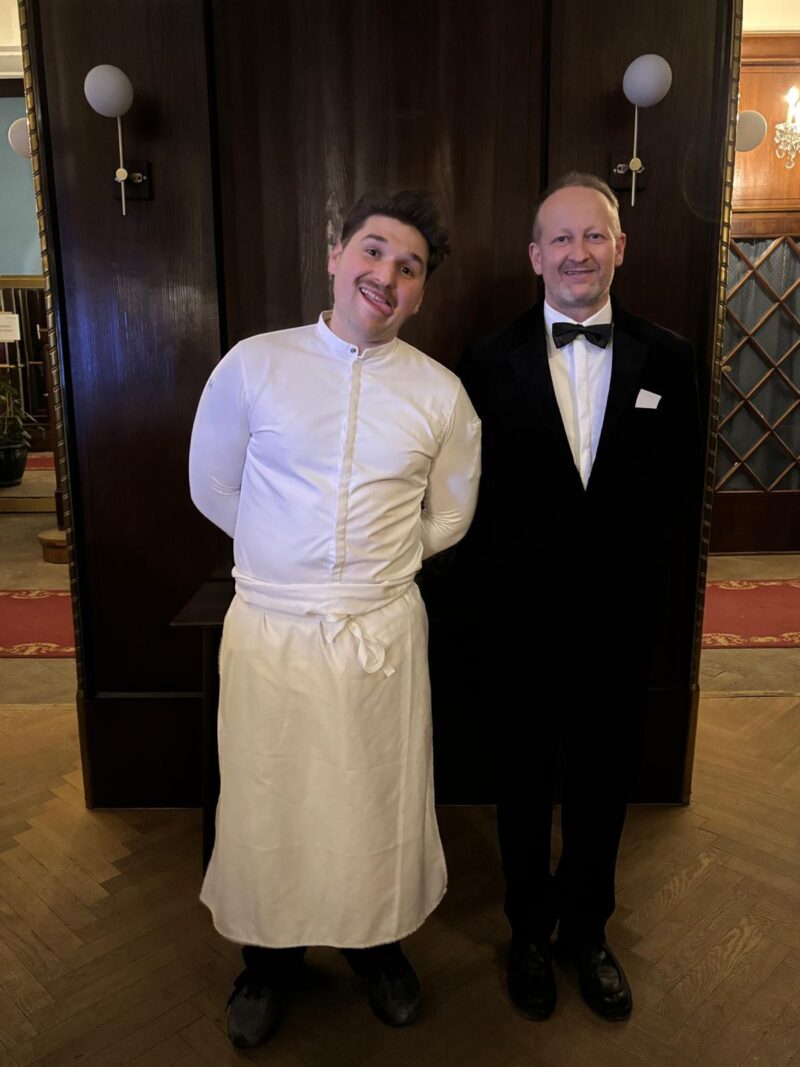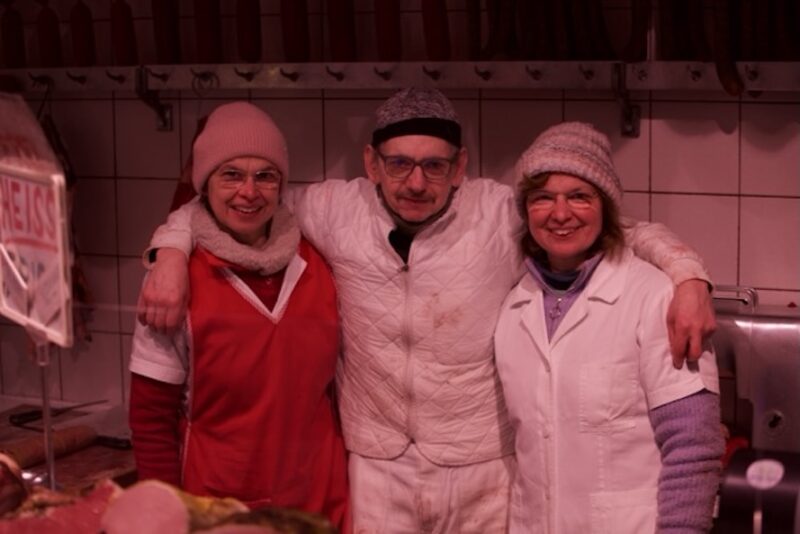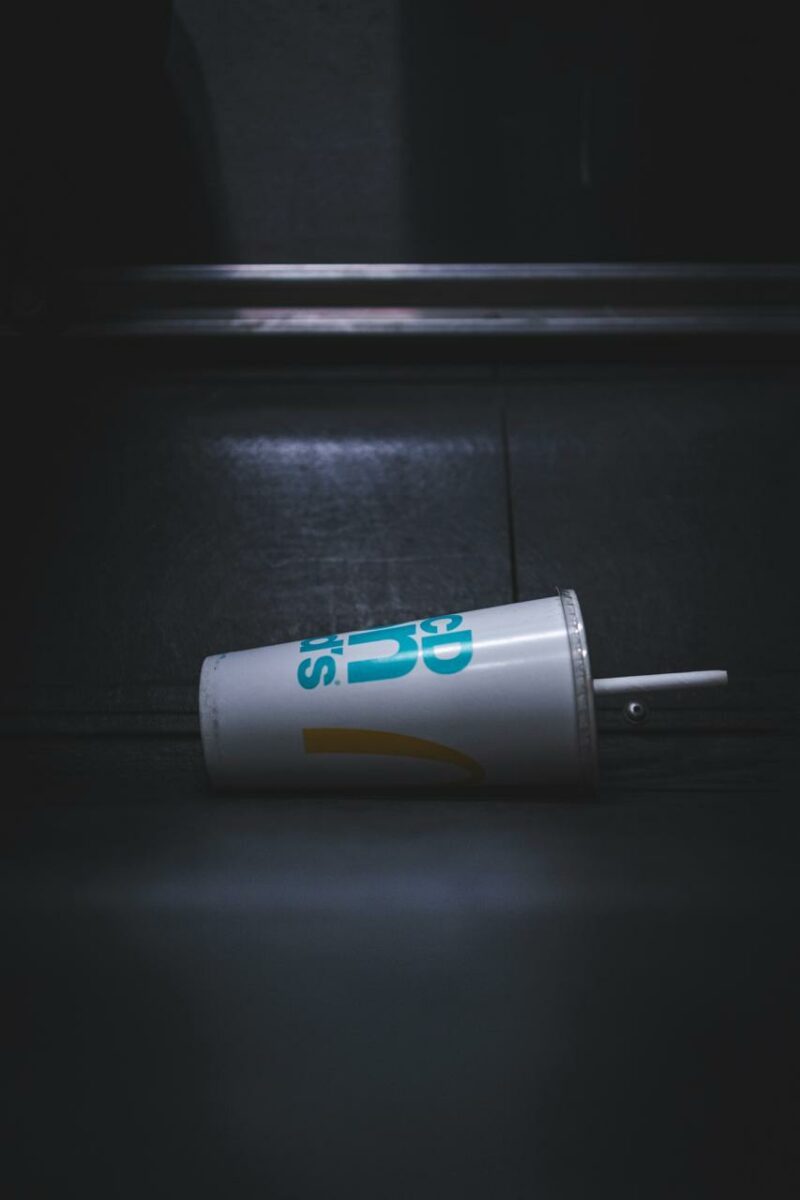The path Silo is taking: A look at Douglas McMaster’s vision
Silo – the world’s self-proclaimed first zero-waste restaurant in London is a symbol of radical sustainable change in the restaurant industry – without losing sight of the fun of fine dining. Overlooking the canal boats in a converted warehouse Silo has completely rejected food waste since its opening in 2019.
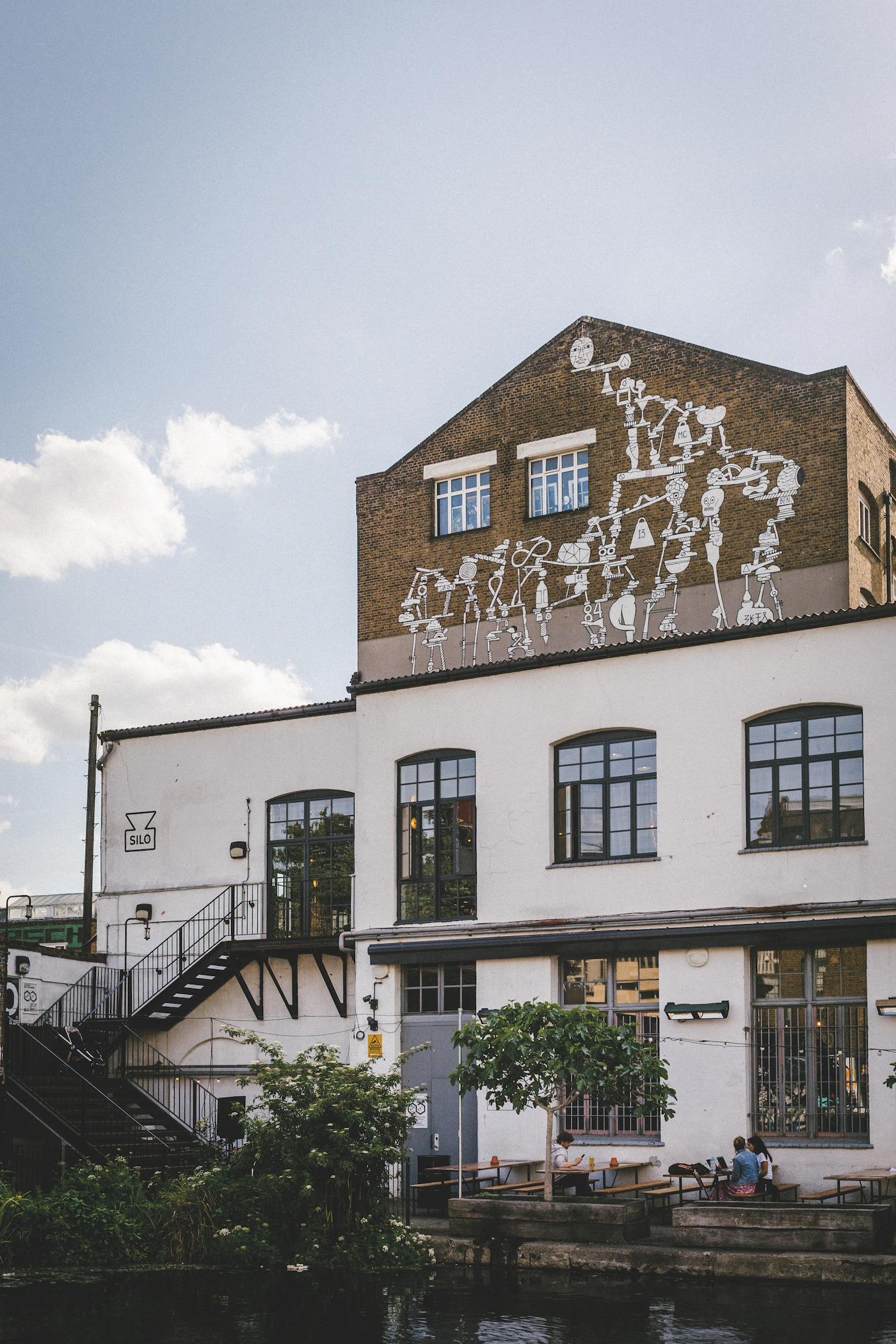
The vision: a restaurant without a garbage can
The restaurant uses its own grain mill, makes its own butter and produces oat milk. In line with the „nose-to-tail“ ideology, the entire animal is used. The in-house brewery creates fermented drinks.
The restaurant’s furniture and equipment are designed for reuse. Upcycling takes precedence over recycling: furniture is made from materials that would otherwise be wasted, and plates are made from plastic bags and tables from recycled food packaging.
Even the tableware is made from crushed wine bottles, among other things. All products are delivered in reusable containers such as boxes, buckets, urns or bins. The minimal remaining waste is compostable.
The restaurant is run by chef Douglas McMaster, whose mission is to ensure that 98 percent of the food that reaches Silo ends up on diners‘ plates in some way – the rest is composted in the best way possible. Even the menus are projected onto white walls to save paper. The dishes are always different, with constant adjustments depending on the availability of ingredients. But despite the complexity of the zero-waste dream the atmosphere remains relaxed and informal. The eleven-course menu with accompanying drinks costs around 145 euros per person.
The zero-waste movement is more than a trend; for some, it is a necessity in a world that is becoming increasingly aware of environmentally friendly practices. Silo may be just one restaurant and its methods may seem out of reach for many, but it shows that sustainability and first-class cuisine can go hand in hand.
I met Douglas as a guest lecturer at the MAD Academy in Copenhagen some time ago and talked to him about his motivation, the beginnings of Silo and how he envisions the future.
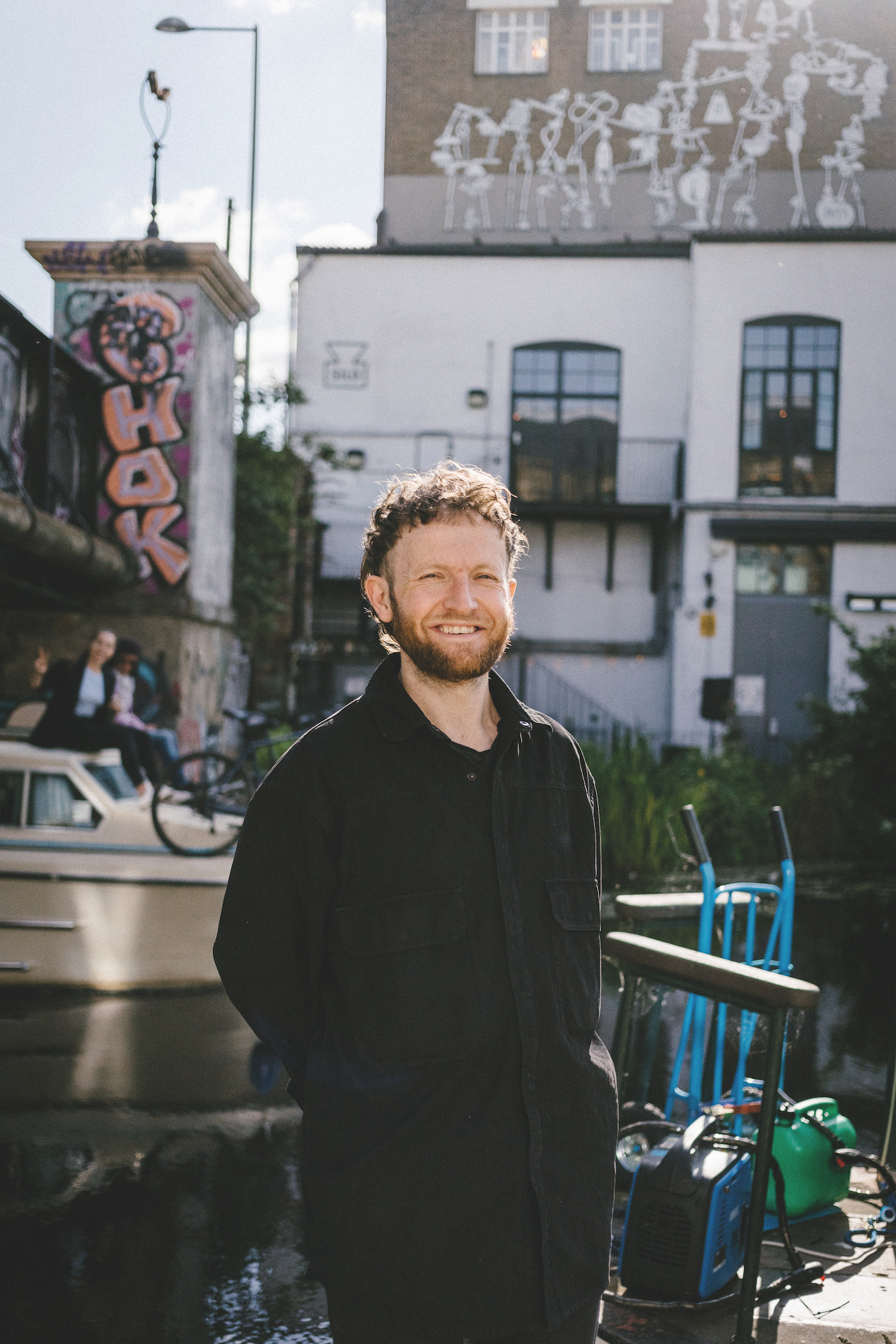
Douglas McMaster. Photo: @Frankowksi
Can you do without garbage cans? Zero-waste pioneer Joost Bakker asked you this question when Silo, your restaurant that claims to be the first zero-waste restaurant, was launched. Could you tell us a little about the beginnings of Silo?
Joost is a visionary, a futurist and, simply put, a genius! I was lucky enough to meet him eleven years ago and was optimistic enough to believe that his venture was possible. But the truth is that I was completely clueless at the time. I had no idea if zero-waste was even feasible and didn’t even know what the word ’sustainability‘ meant. It has been a long and arduous journey since then. But it is precisely the most difficult paths that bring the greatest adventures.
The idea was so far ahead of its time that it seemed strange to many people, both customers and employees. Communicating this vision in the early days was an immense challenge.
Everyone believed that zero waste meant serving customers waste as food.
I used to get annoyed at people’s misinterpretations – Silo was often dismissed as attention-seeking and pretentious. The frustration of this was sometimes hard to bear. But then I saw a „School of Life“ video on YouTube that changed my perspective. The video is called „Plato On: The Allegory of the Cave“. When I understood the message, I felt great relief: a sudden radical change can overwhelm a person and cause stress. I realized that I simply had to be patient.
The silo logo is the symbol of a grain mill, which for you represents a holistic and natural food system – why is the relationship with farmers and direct trade so important?
The grain mill symbolizes the direct sourcing of wholesome food from farms. All of our fresh products come directly from the farmers, not from wholesalers. Wholesale means that you can always get what you want, all the time. Farmers cannot make such a promise; our menu reflects the farms we work with. It is subject to the bounty of nature. This kind of planning means that our chefs have to be as intuitive as Jedi knights.
Agriculture is the most important aspect of sustainability. Relying on supermarkets and wholesalers will only exacerbate industrial agriculture, leading to monocultures that destroy the soil, loss of biodiversity, nutrient deficiencies, plastic pollution, food waste and many other environmentally damaging effects.

Photo: Frankowski
Can you explain the concept of regenerative agriculture and why it is so crucial for our future?
Regenerative agriculture is crucial if we humans want to continue to exist on this planet. Our current industrial agricultural system is like a cancer that is destroying its host. It has destroyed most of the fertile soil, destroyed biodiversity, emitted enormous amounts of greenhouse gases and poisoned the planet and its inhabitants with chemicals such as glyphosate.
‚Regenerative agriculture‘ is the exact opposite. I believe it should be at the center of our efforts if we want to save the planet. I like to describe regenerative agriculture as „listening to what nature wants“. There are many approaches, but soil is the best example. If we treat the soil the way it deserves to be treated – nurturing it, feeding it, caring for it and loving it – then over time it will be full of diverse life. If we grow food on that soil, we will get the same amount of love back, nourished with vitality and strength. This is the best investment we can make to regenerate the planet and people.
With Silo, you showed how to use waste materials to furnish a space. What do you think of things like this, for example a stool made from mushrooms?
Silo is a compilation of the most thoughtful and innovative regenerative and waste materials. It shows that waste is a failure of imagination. Not only can we design waste out of this world, it can be just as beautiful as any other material. I would even argue that it is even more beautiful because it represents something meaningful.
You say that change is difficult and therefore perseverance is very important. How do you stay on your path and what motivates you?
I am motivated to keep going when I see that the world is on fire. Climate change is very real and our actions are directly linked to it. I know that I am responsible for any negative impact I have on the planet, so I feel motivated to make amends.
Imagine you had a bad day and were very rude to your friends and family. What would you do? Of course you would apologize to your friends and family, why not apologize to the planet?
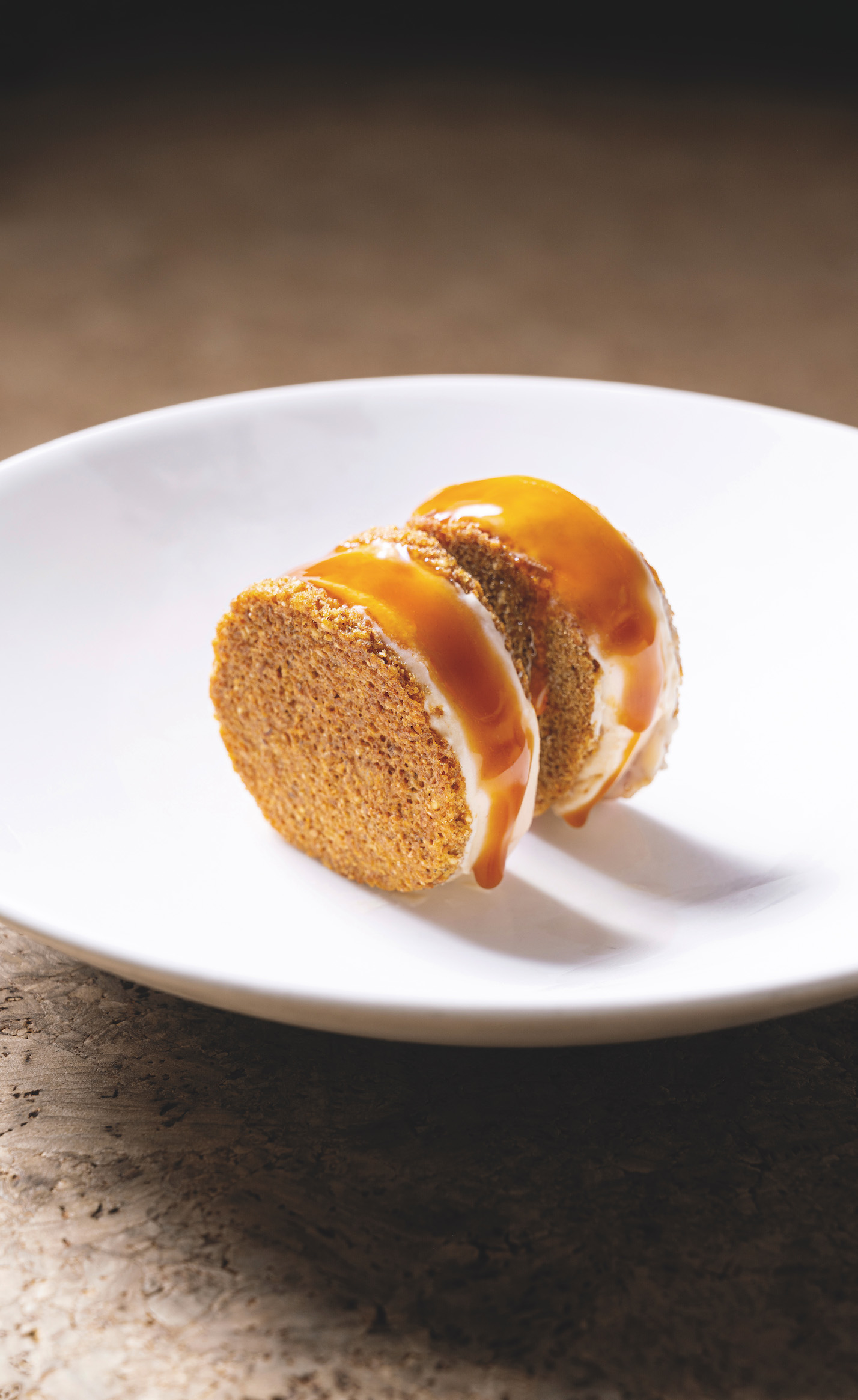
Photo: @HDG_Photography_
You always say you can turn things of no value into valuable things. How do you see the future of gastronomy in terms of implementing zero waste?
Zero waste is the future. It has to be, otherwise there is no future. Call it zero waste, call it sustainability, call it caring for nature. The name is less important – the important thing is that we all understand the idea that we are part of nature and that we need to feed nature in order to continue to feed ourselves.
Zero waste is a system with no loose ends, and Silo is a very good example of how it can work; we have a pottery that turns our waste glass, like our wine bottles, into plates, we turn old bread into Marmite, we repair our broken dishes with Kintsugi, our food is delivered entirely in reusable containers. These are just a few examples of this circular way of thinking.
The zero-waste movement is more than a trend; it’s a necessity for some in a world that is becoming increasingly aware of eco-friendly practices. Silo may be just one restaurant, and its methods may seem out of reach for many, but it shows that sustainability and world-class cuisine can go hand in hand.

